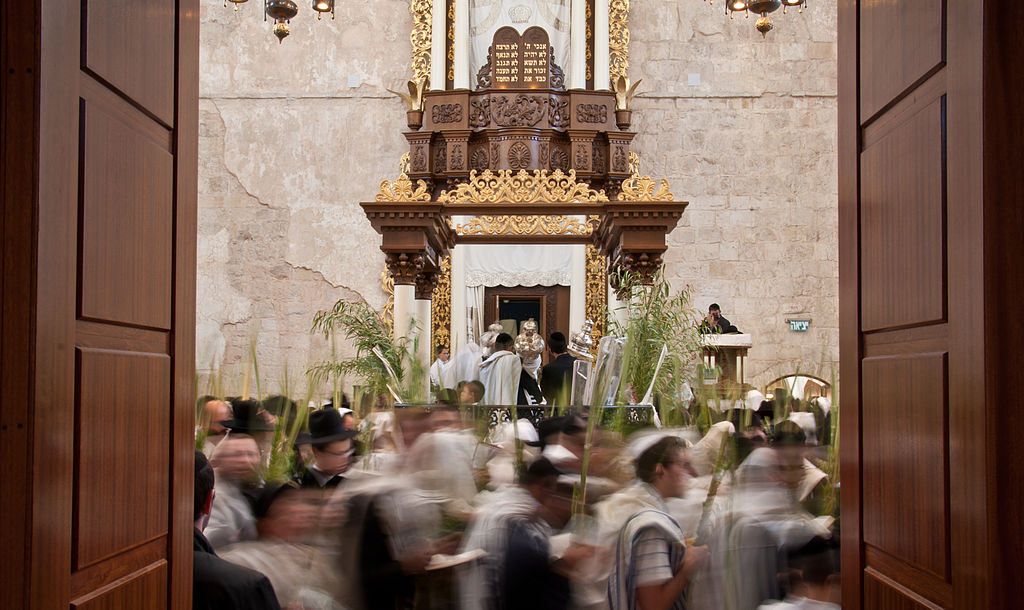On Passover we end the prayers for rain that began on October 7, and begin the prayers for dew. The prayers end, but the war that began with the October 7 attack does not. Here is a reflection on that:
TOGGLE COLUMNS (on/off):ADJUST COLUMN POSITIONS: select the column header cell and drag it where you want. show me!COPY INDIVIDUAL COLUMN(S): use CopyTables, a browser extension.
| Contribute a translation | Source (English) |
|---|---|
Morid Hatal – מוריד הטל – to the One who settles the dew, post-October 7[1] On October 7 (which was Shemini Atseret), we began reciting prayers for rain. On Passover, we end those prayers and begin reciting prayers for dew. | |
The rains are come and gone, the winter passed,[2] Song of Songs 2:11. the blood stains washed into the soil — if they are ever really washed away. Now dew will collect, gently, on burned down beams, on untended orchards And so we ask for Tal, for dew of blessing, of peace… | |
Our prayer for rain came with terrorandrapeandmurderandtorture this year. There was only one cardinal sin, and Zionism was to be an iron wall against it: to never again be victims.[3] Psalms 27:12. While the enemies who breath violence still breath upon us, yes, indeed you will | |
Then to stop that breathing, at any cost of life or soul, is that the mission? But what year-to-come, what world-to-come, can bring strong enough rain, enough to wash away tears for the tens of thousands burned or buried under sundered concrete, where the dew cannot reach? | |
And now the rains are come and gone. But aggrievement wrought still works new grief, so in Aza love becomes death-like, azah khamavet ahavah.[4] Song of Songs 8:6. And so we ask for Tal, for dew of blessing, of peace… | |
Let it not be said, heavens, earth, will not give,[5] Haggai 1:10. for still do they give their dew, their fruits, but their gifts of peace, of living lavetaḥ in the land, those are stayed, their stillness held imprisoned, or us imprisoned from their lack. Still the kalaniyot, the poppies, burst forth just when they are supposed to,[6] Song of Songs 2:12. not mourning, feeling no pain And so we ask for Tal, for dew of blessing, of peace… | |
Are there anyway sufficient drops in the ocean, to wear away the runnels of desperation, of anger, of grief? To wash away the hatred, impregnating the land like salt, like Eden’s mist? | |
Were all the heavens parchment and all the seas ink, blah blah blah — why bother with one more scrap of liturgy, why drop another poem for that matter? | |
as if this were normal, and we can pretend to get back to normal times, while the worst wend any path to freeze time still, or jump it forward to end times, so there can be no reckoning for themselves, while these brothers and sisters, fathers mothers children, await, still, in darkness. | |
May waiting cease, for them to be brought out, from darkness to light, mei-afeilah l’orah.[7] The phrase is found in the prayer for the captives, “Aḥeinu kol beit Yisrael” recited during the Torah reading service. Also find, Jerusalem Talmud Berakhot 4:1:7, and Bereshit Rabbah 3:5. [/foot] And so we ask for Tal, for dew of blessing, of peace… | |
They will live, your dead, this corpse of Mine, they will rise up, awakening, so the writ speaks.[8] Isaiah 26:19 They will sing, the ones dwelling in sod and rot and dirt, or under collapsed buildings, or burned to ashes, for it was said: a dew of lights comes a-dawning: that will be your dew, and the land — the land will let fall its ghosts, or drop them from its dewy womb,[9] Job 38:28. returned from death to some kind of life And so we ask for Tal, for dew of blessing, of peace… | |
And those who sow war, let them let it lie fallow, or be felled, or failing. And protect the innocent, return them to their land that is also this land. Must we wait til vengeance be consumed, deplete? | |
That dew of resurrection, secreted in the seventh heaven, called Aravot,[10] Chagigah 12b.5 waiting to drop like mercy, gentler than the gentle rain, tizal katal… Didn’t this god of ours promise: I will become like the dew to Israel.[11] Deuteronomy 32:2. Like a lily that land will flower, they will strike their roots, as deep as the mountains of Lebanon,[12] Hosea 14:6. as eternal as the hills, so that blessing be commanded forever, like dew upon the mountains of Zion…[13] Psalms 133:3. And so we ask for Tal, for dew of blessing, of life, of peace… |
Rabbi Seidenberg provided as an endnote a list of verses connected to his poem. Where they seemed to be clearly associated, I have added them as notes inline with the text. –Aharon Varady
Notes
| 1 | On October 7 (which was Shemini Atseret), we began reciting prayers for rain. On Passover, we end those prayers and begin reciting prayers for dew. |
|---|---|
| 2 | Song of Songs 2:11. |
| 3 | Psalms 27:12. |
| 4 | Song of Songs 8:6. |
| 5 | Haggai 1:10. |
| 6 | Song of Songs 2:12. |
| 7 | The phrase is found in the prayer for the captives, “Aḥeinu kol beit Yisrael” recited during the Torah reading service. Also find, Jerusalem Talmud Berakhot 4:1:7, and Bereshit Rabbah 3:5. |
| 8 | Isaiah 26:19 |
| 9 | Job 38:28. |
| 10 | Chagigah 12b.5 |
| 11 | Deuteronomy 32:2. |
| 12 | Hosea 14:6. |
| 13 | Psalms 133:3. |

“מוריד הטל | Morid Hatal — to the One who settles the dew, post-October 7 — by Rabbi David Mevorach Seidenberg (neohasid.org 2024)” is shared through the Open Siddur Project with a Creative Commons Attribution-ShareAlike 4.0 International copyleft license.










Comments, Corrections, and Queries